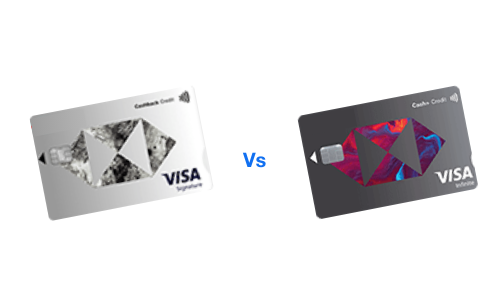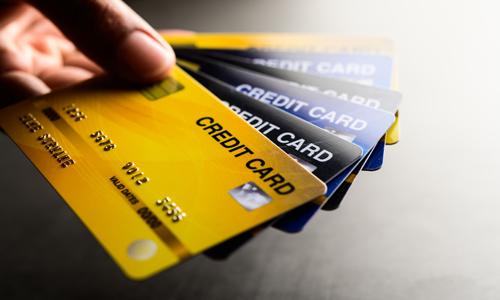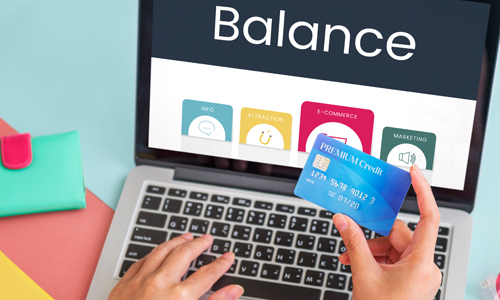- Perks of Having a Credit Card
- How Do Credit Cards Work?
- Should You Have Multiple Credit Cards?
- Benefits of Having Multiple Credit Cards
- Tips and Tricks to Manage Multiple Credit Cards
- Thoroughly Review the Terms and Conditions of Your Credit Card
- Keep a Close Eye on Your Credit Card Activity, Especially When Managing Multiple Cards
- Frequently Asked Questions
Tips and Ways to Managing Multiple Credit Cards

Managing multiple credit cards effectively is crucial for maintaining your financial stability and ensuring a healthy credit profile. In today's world, while credit cards offer convenience and numerous benefits, they can also pose significant challenges if not handled with care.
This article aims to provide you with practical insights and strategies to navigate the complexities of juggling multiple credit cards. We'll explore together the importance of responsible credit card ownership, including tips on budgeting, tracking expenses, and making timely payments. Understanding the impact of your credit utilisation and how it affects your credit score will be a key focus.
Additionally, we'll dive into strategies for consolidating and simplifying your credit card debt. You can use these strategies and stay on top of your financial obligations without falling into the debt trap.
Whether you're new to credit cards or have already amassed a collection, this guide will equip you with the knowledge and tools necessary to manage multiple cards wisely and maintain your financial well-being.
Perks of Having a Credit Card
Credit cards play an essential role in modern life, offering both convenience and various repayment options. These cards offer unparalleled discounts and promotions to their users, although improper usage can quickly lead to a cycle of debt.
For those new to credit cards, here is a list of their advantages -
- Convenient Access to Borrowed Funds - One of the primary benefits of owning a credit card is the ease of accessing borrowed funds. Credit cards operate on a deferred payment system, allowing you to make purchases now and settle the bill later. When you swipe your credit card, the amount is deducted from your pre-approved limit, safeguarding your bank balance.
- Establishing a Credit History - A credit card holds significant importance when it comes to loan applications. Financial institutions assess credit card usage to determine creditworthiness and approve loans for potential borrowers. Banks also monitor credit history based on credit card repayments and usage.
- EMI Facility - People often desire to purchase expensive items that might deplete their savings. In such scenarios, credit cards offer the option to postpone payments and even break them into manageable monthly instalments. Buying costly items like televisions or refrigerators through credit card EMIs can be more cost-effective than taking out a personal loan.
- Exciting Offers and Discounts - Credit cards are packed with a multitude of enticing discounts, promotions, and deals. These benefits can take the form of cashback, reward points, and more, which are typically redeemable for a limited time after the purchase.
Additionally, credit card payments for significant purchases may even earn you free flight tickets or vacation packages.
How Do Credit Cards Work?
Credit cards serve as brief-term borrowing instruments. When you employ a credit card, you typically access funds provided by the credit card company. The reimbursement schedule for this borrowing is based on the predetermined timing.
The company establishes a pre-authorised spending cap for the borrower, which is determined based on factors such as credit Score, income, and account history. As you make payments to reduce your balance, your credit card becomes available for further use.
The company responsible for your credit card sends you a comprehensive monthly statement detailing your transaction history, outstanding balance, minimum payment, and due date.
Should You Have Multiple Credit Cards?
The answer to this question depends on the type of credit cards that you have and the ones that you want. For instance, if an individual possesses a diverse assortment of credit cards that significantly differ from one another in terms of their usage and benefits, it is usually acceptable to have multiple cards.
Let's consider a scenario where one card is a travel credit card designed for expenses related to travel, while another is a rewards card primarily used for everyday purchases.
The travel credit card isn't the best choice for typical purchases like groceries. Conversely, a regular credit card isn't the most suitable option for travel expenses. In this case, having multiple credit cards is sensible because it allows individuals to maximise their rewards points and enjoy travel-related perks that a regular credit card wouldn't offer.
Ideally, having two or three credit cards, each with distinctive features, is acceptable. However, it's generally advised against having more than three credit cards. Those who can effectively manage their financial needs with just one credit card should adhere to using only one.
As long as the cardholder remains diligent in making timely payments on all credit card bills, it won't negatively impact their ability to access other forms of credit.
For entrepreneurs and business owners, it's a prudent strategy to maintain a separate credit card for personal expenses and another exclusively for business-related transactions.
Benefits of Having Multiple Credit Cards
Let’s take a look at the benefits that you can enjoy with multiple credit cards -
- Assists in Maintaining a Low Credit Utilisation Ratio - When you possess only one credit card and utilise, say, 90% of its credit limit, your credit utilisation rate naturally decreases. In contrast, having multiple cards and using only 50% of each credit limit helps you maintain an optimal utilisation ratio, which can be advantageous in terms of maintaining and improving your credit score.
- Contributes to Improving Your Credit Score - Individuals who manage several credit cards and consistently make timely payments can enhance their credit scores significantly. This, in turn, boosts their creditworthiness and opens up more opportunities for obtaining credit.
- Expands Your Credit Limit - Owning multiple credit cards provides you with access to a higher overall credit limit. However, it's crucial to utilise this increased limit responsibly.
- Offers Additional Rewards and Cashback Benefits - Multiple credit cards grant customers access to a wider array of card-related perks and advantages such as cashback offers and reward programs.
Tips and Tricks to Manage Multiple Credit Cards
Here are some easy-to-do practices to manage your multiple credit cards effortlessly -
Be Mindful of the Credit Limit Associated with Each of Your Credit Cards
To effectively manage multiple credit cards, it's crucial to regularly check the credit limit of each card, regardless of the size of your transactions. Your credit limit is determined by the bank based on your credit score and credit history.
Lower credit scores result in lower credit limits, although you can request a higher limit when applying for a credit card.
Keeping a constant watch on your credit limit assists you in budgeting for bill payments and being cautious with your spending on other credit cards. Several individuals make small credit card transactions without realising that they accumulate, which can lead to considerably large bills at the end of the billing cycle.
If you have multiple credit cards, it’s essential to create financial plans for each of your cards. This allows you to allocate monthly expenses among them and prevent excessive spending on a single card.
Selecting the Right Credit Card is a Crucial Step in Successful Credit Card Management
To effectively manage your credit cards, you must first choose the cards that meet your daily and monthly financial requirements. Additionally, consider the various benefits and offers associated with credit cards to maximise your benefits.
When choosing a credit card, evaluate the following three key criteria -
- Interest Rates: The interest rate is a significant factor in card selection. Lower interest rates result in lower costs at the end of the billing cycle. As interest rates vary among banks, thorough research is necessary to find a card with favourable terms.
- Benefits and Rewards: Consider the rewards and benefits offered by each card. These can include signup bonuses, cashback offers, and renewal rewards. Opt for the card that offers the most appealing rewards.
- Fees and Penalties: Fees and penalties play a vital role in your credit card choice. High credit limit cards often come with higher joining and annual fees. Review the terms and conditions before applying for a credit card to understand the associated costs.
Consistently Monitor Your Credit Card Bill Payment Due Dates to Effectively Manage Multiple Cards
Different banks may assign different due dates for generating credit card bills. If you have multiple credit cards from various banks, remembering each due date can be challenging.
You can employ various methods to remember due dates, such as setting reminders on your phone or setting up automatic payments. Automatic payments ensure that the bill amount is automatically debited from your specified savings account on the due date.
Monitoring your credit card bill payment dates is essential, especially if you have multiple cards. Missing a payment can negatively impact your credit score and future credit opportunities.
Thoroughly Review the Terms and Conditions of Your Credit Card
The terms and conditions document of your credit card provides crucial information about fees, interest rates, and other terms that apply to your card.
This document includes details such as the annual percentage rate for purchases, cash advances, and balance transfers, as well as the minimum interest charge for carrying a balance from month to month. It also outlines fees such as annual fees, balance transfer fees, foreign transaction fees, cash advance fees, late payment fees, and returned payment fees.
Many credit cards offer rewards and offer programs, subject to specific terms and conditions. It's essential to understand these conditions, including minimum purchase requirements, partner establishments for rewards, signing bonuses, and promotional offers.
Keep a Close Eye on Your Credit Card Activity, Especially When Managing Multiple Cards
Multiple credit cards can lead to various transactions of varying amounts, making it difficult to track them all. However, it's strongly recommended to monitor your credit card activity to prevent unexpected debts from accumulating or to promptly detect fraudulent transactions.
Regularly review your credit card statements and transaction history online to help you budget and plan for monthly bill payments.
Frequently Asked Questions
Ans: Having multiple credit cards does not negatively affect your credit score if you smartly manage your cards and maintain a low credit utilisation ratio.
Ans: Keeping your inactive credit cards open is advisable as it contributes to a lengthier credit history and a higher available credit limit, both of which are factors that credit scoring models tend to reward.
Ans: Having multiple credit cards brings numerous benefits to you such as the ability to boost your credit score, increase your available credit limit for emergencies, and enjoy additional perks like reward points.
Ans: Banks and financial institutions typically perform a comprehensive assessment of your credit score, credit report, and other factors before approving you for an additional credit card.
More From Credit Cards
- Recent Articles
- Popular Articles



















